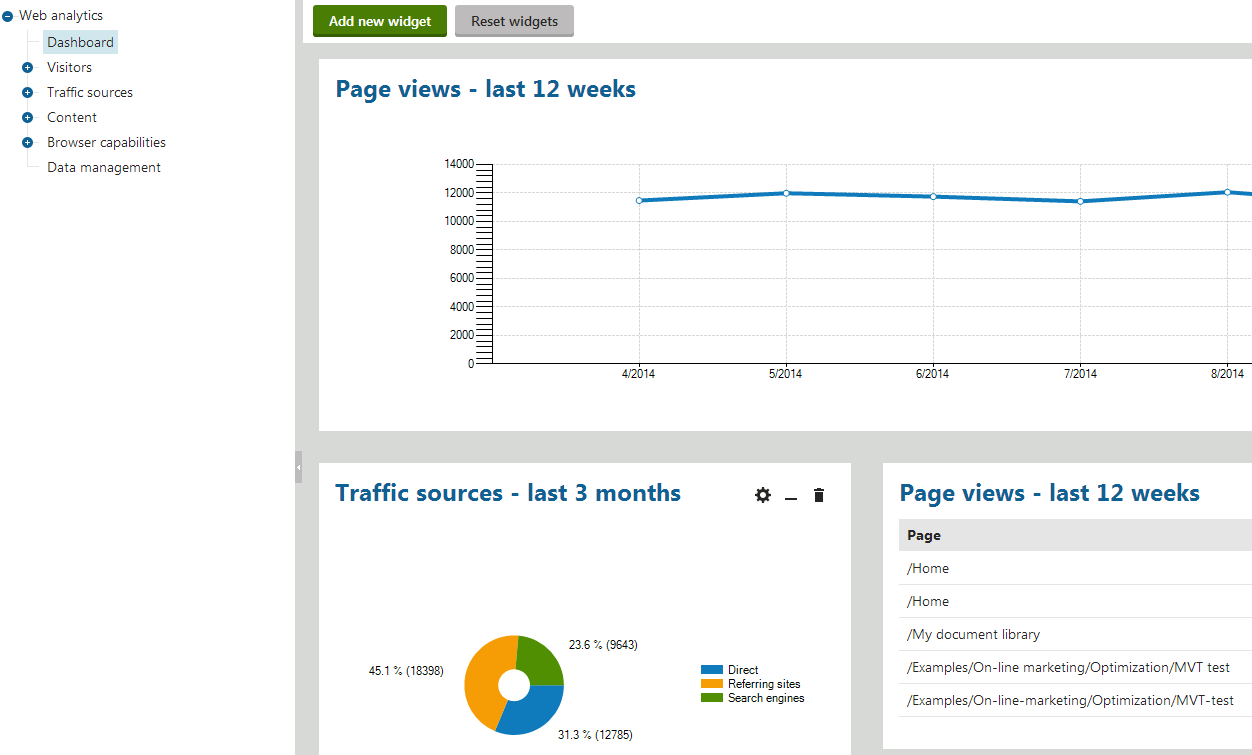Web analytics
Web analytics provide a way to measure and later analyze key metrics of your website such as visits, page views, file downloads, traffic sources and much more. Monitoring is only done on the live site, so actions that take place on the pages belonging to the Kentico administration interface are not included in the statistics.

In addition to measuring various statistics for the website and its pages, web analytics are also used by several other on‑line marketing features:
How web analytics work
When a tracked event (such as a page view, file download, etc.) occurs, the system stores a record in the application’s memory. The application then periodically writes the memory records into log files in the ~/App_Data/CMSModules/WebAnalytics folder. The names of the files use the following format: <event type>_<date>_<time>.log
Disabling memory logging for analytics
The intermediate memory storage step improves the performance of the web analytics logging on high-traffic websites. The logging does not use up a significant amount of memory, but you can configure the system to directly log analytics records into physical files if you need to fully minimize the application’s memory usage.
Add the following key to the appSettings section of the application’s web.config file:
<add key="CMSWebAnalyticsUseMemoryStorage" value="false" />
The Process analytics log global scheduled task reads the content of all analytics log files every minute (or other scheduled interval) and imports the processed data into the database. You can view the status of the scheduled task and configure its settings in the Scheduled tasks application.
This data is then loaded from the database and presented in an easy to read format using web analytics reports (defined through the Reporting application).
You can manage the analytics data directly in the interface — either delete old data or generate sample data for evaluation purposes.
Limitations
Web analytics only track content and events related to pages managed by Kentico. It cannot track other content, such as html files or media files that are not served by Kentico.
You may notice a delay between the time that an event occurs on the website and the time the web analytics statistics are updated. All tracked events are first stored in temporary files on the local file system and need to be processed by a scheduled task.